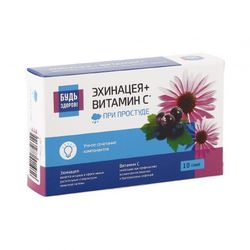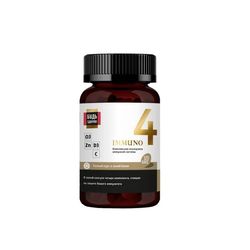Epiphamine Hormonal Immune System Sleep Wake Mode Antioxidant
Quantity
IS NOT A MEDICINE
Corrects and improves the work of hormonal and immune systems, normalizes sleep and wakefulness, has an antioxidant effect
Violation of the functions of the endocrine, immune systems
Disorders of the blood clotting system caused by radiation, chemotherapy, exposure to other extreme factors
Hormonal metabolism disorders
Consequences of injuries and vascular pathology of the nervous system
Disorders of glucose and fat metabolism
Oncological diseases, including during radiation and chemotherapy
Condition after extreme stress loads
For elderly people to maintain the function of the endocrine system and improve overall vitality
The pineal gland or pineal body is a small gland weighing 0.15 - 0.20 g located in the midbrain. The epiphysis as an endocrine gland was discovered later than other glands and for a long time scientists did not fully understand its significance. To date, it is known that the pineal gland produces the hormone melatonin, responsible for the so–called circadian rhythms - alternation of sleep and wakefulness, and simply put, its production ensures normal sleep.
Other functions of melatonin are also important. Melatonin is a strong immune modulator and affects the functions of the immune system. It participates in the regulation of cell proliferation and has an anti-carcinogenic effect.
In addition to the production of melatonin , the epiphysis also performs the following functions:
Regulation of phosphorus, calcium and magnesium metabolism;
Synthesis of serotonin – the hormone of joy;
Regulation of water-salt metabolism;
The production of a hormone that affects the adrenal glands and regulates blood pressure.
The diverse functions of the epiphysis suggested that it plays a role in the regulation of life expectancy. And the aging of the epiphysis, which begins after puberty, leads to the aging of the entire body. Therefore, we can say that the epiphysis is the gland of youth and the condition and youth of the whole organism depends on its normal functioning.
Therefore, it is so important that the epiphysis cells remain intact for as long as possible and perform all their functions in full. Otherwise, damage to the cells of the pineal gland can lead to not only various hormonal or metabolic disorders, but also premature aging of the body.
For each cell of our body, the cells of the pineal body are no exception, proteins are very important, proteins that form the structure of the cell and participate in its metabolic processes. As it was established thanks to the discovery made in 1999 by Gunther Blobel, who received the Nobel Prize for his scientific work, proteins control the processes of intercellular interaction and determine the ability to self-repair cells. The lack of peptides (with age or pathology) accelerates tissue wear, aging processes and leads to the development of diseases.
Epiphamine is derived from the pineal gland of cattle and is a complex of proteins and nucleoproteins that are identical to those in humans. Epiphamine has a selective effect on the cells of the epiphysis, contributing to the regulation of hormonal metabolism, as well as the correction of immunity and the blood clotting system, the production of melatonin.
Due to the mechanism of transcytosis, the incoming protein appears unchanged in the target cell. In this case, the target is the cells of the pineal body. Getting into them, Epiphamine saturates cells with an optimal protein "diet", allowing them to recover faster and normalize the performance of their functions – the production of melatonin, maintaining normal immunity and hormonal balance.
Clinical trials of Epiphamine were conducted in 167 patients with asthenia, severe manifestations of the female climacteric period, dyshormonal myocardiodystrophy, as well as in cancer patients on the background of radiation and chemotherapy. According to the results of the use of "Epiphamine" for the treatment of asthenia, its high efficiency in getting rid of asthenoneurotic symptoms has been established. A good effect from the use of Epiphamine was found in patients with headache syndrome, signs of dizziness and emotional instability.
During the course of Epiphamine intake in patients with dyshormonal myocardiodystrophy, a decrease in the number and intensity of attacks of pain in the heart, increased efficiency and normalization of the psycho-emotional state, positive dynamics of ECG indicators were found.
Method of application
Epiphamine is recommended to take 1-3 tablets, 10-15 minutes before meals, 2-3 times a day, for 10-15 days. Repeat course in 3-6 months. Epiphamine has no contraindications and can be used both independently and as part of complex therapy.





